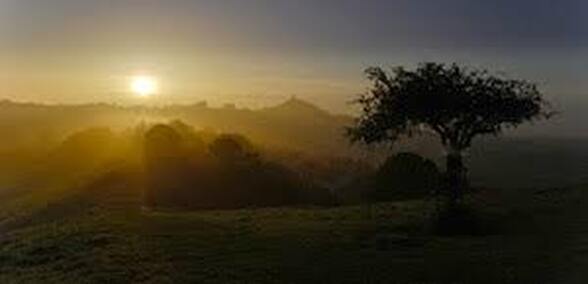But what about Saturday?
The Bible records the things that happened on Good Friday and it records events of Sunday, Resurrection Day. It’s strange that the two days on either side of Saturday are so heavily discussed. Some of the brightest minds in the world have devoted themselves primarily to those two days; they have been across the centuries, maybe the two most studied days in history. The Bible is full of what happened the day before, the day Jesus was killed. And the next day, Sunday, is the day believers say gave birth to the most death-defying, grave-defeating, fear-destroying, hope-inspiring, transcendent joy in the history of the world.
The Bible is silent about what happened on Saturday so we can’t really say what happened on that day between Good Friday and Easter, but we can, through the Holy Spirit, talk about the silence of Saturday.
Between The Crucifixion And The Resurrection
From: The YouVersion Reading Plan Strange Kingdom - Meditations On The Cross To Transform Your Day-To-Day Life by Ken Costa
John 19:38 GNT After this, Joseph, who was from the town of Arimathea, asked Pilate if he could take Jesus' body. (Joseph was a follower of Jesus, but in secret, because he was afraid of the Jewish authorities.) Pilate told him he could have the body, so Joseph went and took it away.
Joseph voluntarily asked for Jesus’ body. It wasn’t forced upon him; he didn’t draw the short straw. He experienced this burden due to his own volition and choice. Was it that he wanted to honor Jesus, even in His death? To follow Him, even to the point of His finality? I believe that this is such an important and profound point to dwell on. When we sign up to a life of following Jesus, we have to accept that we will experience the glory of the resurrection as well as the burden of the crucifixion. But for all of us, there are Saturdays when all we have is the weight and the burden of taking the body of Christ onto our own frames.
Like Joseph of Arimathea, we carry the dead weight of Christ. In His case, it was literal, but, in our case, we carry the weight within our very beings. We perhaps bear the silence of God at times of stress in our lives and relationships. We long to hear God’s voice and see His light, but His absence feels like a lifeless weight bearing down on our souls in the shadows. Joseph of Arimathea carried the corpse of Christ, and bore the accompanying silence, even though he did not know that Resurrection Sunday was around the corner.
We carry Christ in our hearts, and sometimes the weight of this burden is so substantial that we are left forlorn, downcast, and hopeless. This is the “in-between” Saturday part of our faith. We must acknowledge that faith isn’t just Good Friday and Easter Sunday, faith is the silence of Saturday too. In his book A Glorious Dark , Dr. A. Swoboda wrote, “So much is sitting in that tomb with the soon-to-be resurrected Lord. It is so dark. So cold. So scary. The silence is deafening. But there is hope in there.” “Immanuel, God with us” is as much true in the darkness of the tomb as it is when the sun rises and the stone is rolled away. Jesus entered His tomb alone and forlorn, but He didn’t stay there. Jesus welcomes us into the hope that Sunday is coming, that He is coming. And that changes everything.
Prayer:
Lord, on my silent Saturdays, today or whenever they come, I choose not to inch. I choose to say with Mary Magdalene that you are still my Lord. And I trust that after every Saturday comes Sunday, after the crucifixion is resurrection, and after death is life. Come, Lord Jesus, Amen.

 RSS Feed
RSS Feed